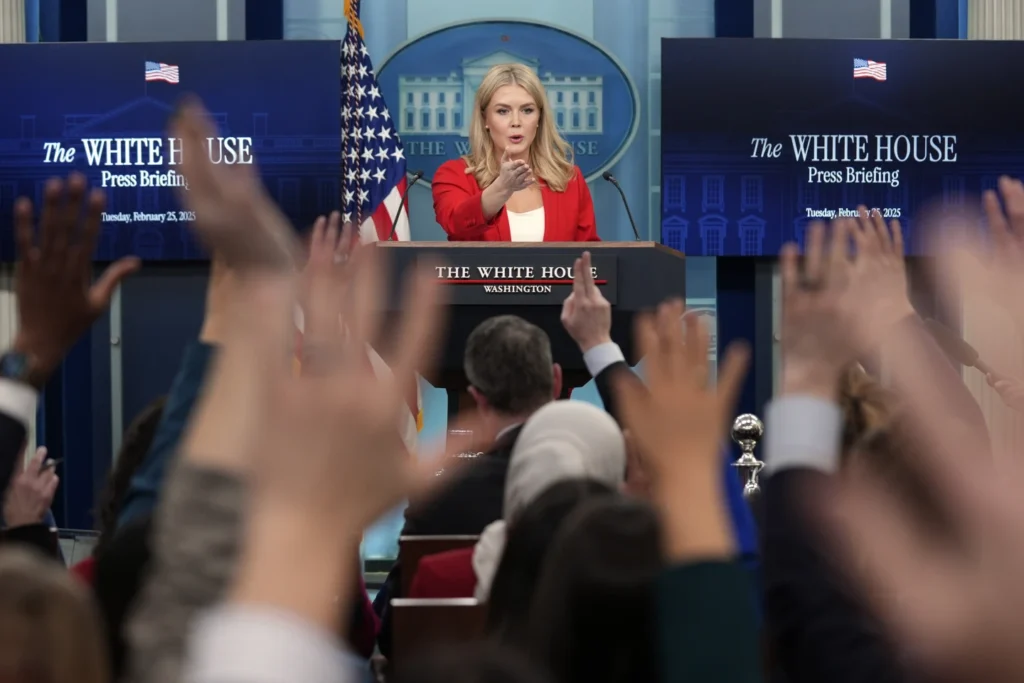The White House announced Tuesday that it will decide which news outlets receive regular access to President Donald Trump, marking a major departure from the century-old practice of independent media organizations determining coverage of the president.

White House Press Secretary Karoline Leavitt stated that traditional media outlets will be rotated out of the press pool, with some streaming services included. She framed the move as a modernization effort aimed at increasing public access. However, media experts have raised concerns over First Amendment implications, warning that the administration is asserting direct control over press coverage.
“The White House press team, in this administration, will determine who gets to enjoy the very privileged and limited access in spaces such as Air Force One and the Oval Office,” Leavitt said during a briefing. She criticized the current system, arguing that a small group of D.C.-based journalists should no longer “monopolize” White House coverage.
Leavitt confirmed that the administration will “double down” on its decision to bar The Associated Press from certain presidential events. The move challenges a long-standing press pool system in which journalists collectively determine access to small spaces such as the Oval Office and Air Force One, ensuring transparency for media outlets and congressional offices that cannot be physically present.
Media scholars warn the policy undermines press independence.
“This is a dangerous move for democracy,” said Jon Marshall, a media history professor at Northwestern University. “It means the president can pick and choose who covers the executive branch, ignoring the fact that it is the American people who, through their taxes, fund the White House, the president’s travels, and the press secretary’s salary.”
Eugene Daniels, president of the White House Correspondents’ Association, also condemned the decision.
“This move tears at the independence of a free press in the United States,” Daniels said in a statement. “In a free country, leaders must not be able to choose their own press corps.”
Bruce D. Brown, president of the Reporters Committee for Freedom of the Press, called it “a drastic change in how the public obtains information about its government.”
The announcement comes amid an ongoing legal battle between the White House and The Associated Press. A federal judge on Monday declined to immediately restore the AP’s access to certain presidential events after the outlet was barred for refusing to comply with Trump’s order to refer to the Gulf of Mexico as the “Gulf of America.” The AP has maintained that it will note Trump’s directive while continuing to use the internationally recognized name.
U.S. District Judge Trevor N. McFadden ruled that the AP had not demonstrated “irreparable harm” but warned that legal precedent was “uniformly unhelpful to the White House.” A further hearing is scheduled for late March.
Separately, the AP has acknowledged Trump’s executive order renaming the United States’ highest peak back to Mount McKinley from Denali, citing presidential authority over domestic geographic designations.



